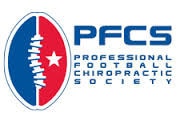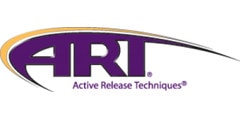Are you experiencing Frozen Shoulder ?
All you want is to be able to blow dry your hair or reach for that coffee mug in your kitchen cupboard. Even getting dressed is a chore. It’s not fun! It hurts!
The bad news, it could be a long road to recovery. The good news, it’s not the end of the world. With proper diagnosis and treatment, it gets better.
What is causing your lack of shoulder mobility?
A frozen shoulder is the development of tiny adhesions between the two joint surfaces of the shoulder, more specifically the head of the humerus and the glenoid fossa of the scapula. These tiny adhesions are the most frustrating bits of fibrous tissue because the only way to get to them and break them down is through surgery. Physical therapy won’t work.
In fact, the more you try to push through the shoulder pain and “make” your shoulder move, the more irritated and painful it’ll become. However, don’t run to your orthopedic just yet.
Many other shoulder problems are misdiagnosed as frozen shoulder. For example, an inflammatory reaction to trauma will cause the muscles around the shoulder to go into protective mode. This can feel like a frozen shoulder, but it’s really just a temporary response. You’re range of motion will improve as that inflammation calms down.
So you might be thinking, “Ok great! Then I’ll just wait until it gets better on its own!” Not so fast.
This inflammatory response is very common when someone injures or tears a rotator cuff tendon, or damages another part of the ligamentous tissue surrounding the shoulder joint. And, yes, at this point in time the best thing to do is wait it out, and let that inflammation calm down over the next week. Once the inflammation has run its course and helped to heal the injured tissue, the shoulder will regain a substantial amount of range of motion.
Here’s where most people end up stuck in a rut.
So you let the shoulder heal. It’s better than it was initially, but it’s just not right. This is the part you don’t have to deal with for the rest of your life. It’s not healed yet! The surrounding musculature has more than likely developed scar tissue or fibrous adhesion in those initial weeks of guarding and healing, and is now the main reason your shoulder isn’t feeling 100%.
This is where Prime Spine Associates can help.
With a thorough history and evaluation of your shoulder, we can identify where these adhesions are located and manually break them down with treatment. Don’t just live with the pain. Especially since a shoulder problem, like any other problem, will eventually lead to more pain in another region of your body. Bad shoulders create neck problems.
Regain your mobility, so you can get back to your daily routine. Enjoy life! Call our Elma Chiropractors Dr. Zelasko and Dr. McCrea today at 716-677-5525 and make an appointment.
Certified in Advanced Chiropractic Care




